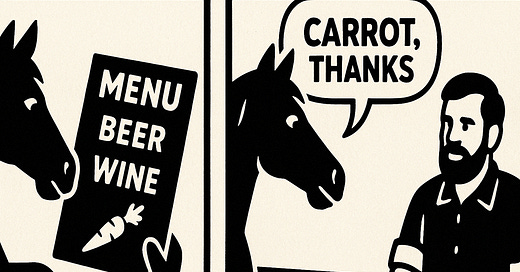Keeping decision-making fast and accuracy as an org scales is … very hard. Some of the challenges:
Too much deference - e.g. “Here’s 3 options, what do you think?”. This happens all the time — especially to folks are more junior or conflict averse — and it creates a downward spiral where the people they’re deferring to don’t have time to make / explain the decision for them so they end up getting blocked and thinking the solution is even more deference. It’s inefficient, it’s frustrating, and it results in worse decision quality in the long-run.
Too little deference - On the flip side, certain decisions require humility. I call it “shepherding” the decision for a reason — whenever no single person has all of the necessary context, a shepherd needs to create a forum to extract that context from the group. If done poorly, they’ll have to revert. The pain of having to revert teaches this lesson, but then sometimes causes people to switch to “too much deference” afterwards.
Decision bottlenecks - As much as we all love clear lines of ownership and DRIs, most big decisions aren’t so clear cut. The result is that there tend to be decision bottlenecks in an org (e.g. “this decision impacts both product and engineering so it has to be made by the CEO”).
Interpersonal frustration - Finally, there’s a lot of frustration caused by misalignment around the level of visibility a decision should have. e.g. I’m blocked until X person has time, and then of course the classic “Why ask me to make this decision if it’s not actually my call?”
To combat these issues, I’ve found the below framework incredibly useful for delegating decision-making work to others. There are 3 ways to make decisions at work …
Type 1: Decide, then inform
Type 2: Propose, then ask for comments
Type 3: Frame the problem, then ask for help
The framework is useful because it allows me to delegate decision-making effectively by saying something like: “Can you drive this? It’s a type 2”.
Let’s dive in.
Type 1: Decide, then inform
Decider has the context and authority to decide independently
Others need to know about the decision because it impacts them
There’s a small chance of a followup that requires revision or reversion - that’s OK
Type 2: Make proposal, ask for comments

Decider doesn’t have all the necessary context to decide independently
Request for feedback should be shared clearly (e.g. a decision doc) for easy review (should take commenters just a few minutes)
Decider needs to do lots of thinking - it’s still their responsibility to ultimately make the call
Commenters should use #fyi tags to make it easy for decider to interpret their comments
Type 3: Frame the problem, ask for help
Type 3 decisions are for truly difficult problems
The big advantage is that you give the commenters permission to tell you about what you don’t know you don’t know
When utilized correctly, type 3 is also great for building trust because it shows vulnerability
Personally, I under-utilize this type of decision making (but am working on it!)





